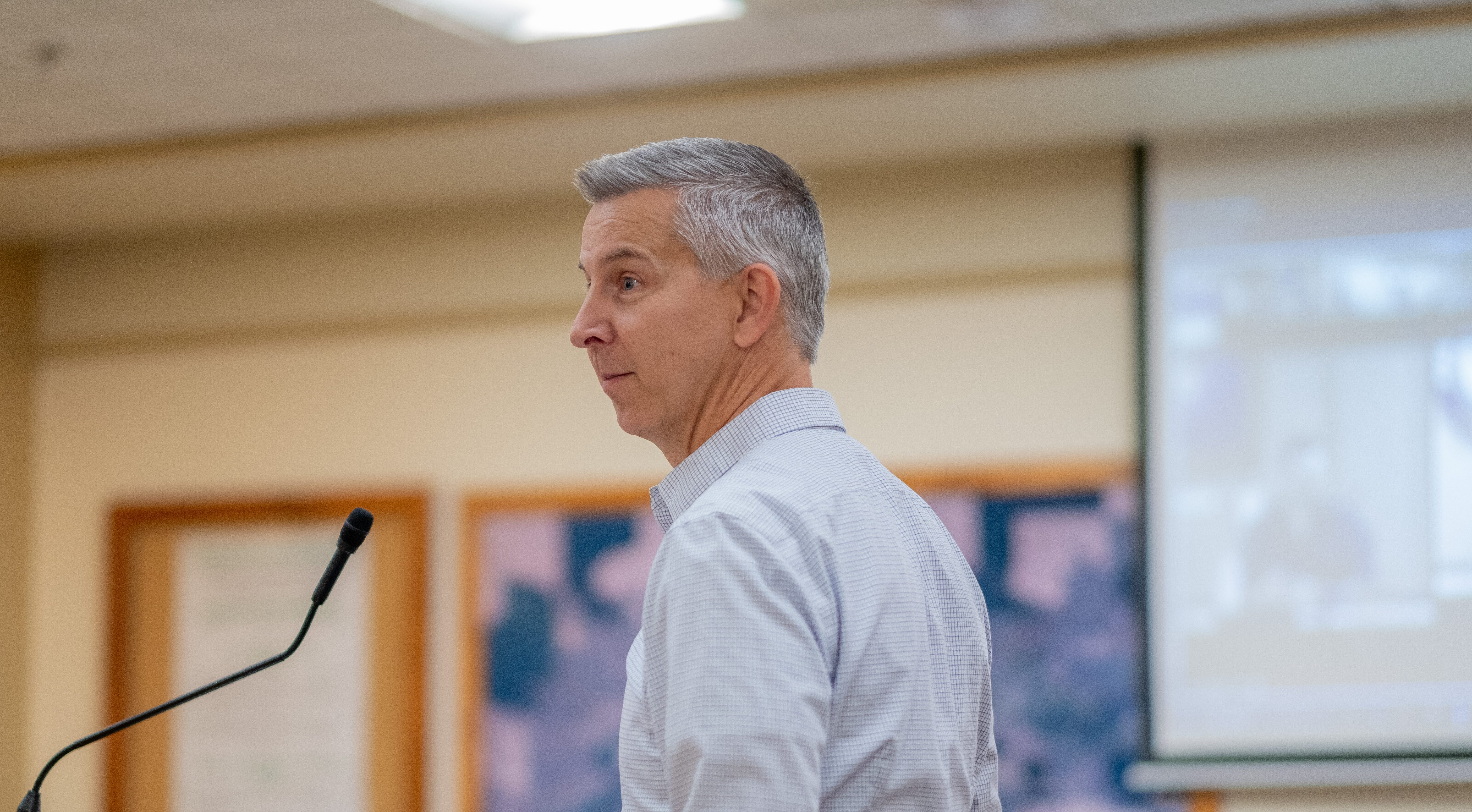Other views: The freedom to choose
Published 7:00 am Saturday, October 23, 2021

- Robertson
Both my parents worked in the medical field at a time when house calls began after office hours were concluded. It was common for families needing medical attention to come to our home evenings and weekends.
I grew up seeing too many examples of the bad side of the childhood diseases that are now diminished because of vaccines. These experiences have left me with a healthy respect for what an easily transmitted, life-altering virus can do, both to a body and a community. I will not deny that the choice to vaccinate, or not, comes with some degree of risk. However, the freedom to choose often comes with risk. It always comes partnered with consequences and responsibilities.
Trending
To discuss rights, God given or Constitutional, without pairing them with responsibility or choice without consequence is to talk in half sentences. It seems that all the collective language in the preamble of the Constitution, “We the people,” “in order to form a more perfect union,” “common defense” and “general welfare” are overlooked too frequently, or without the recognition that actions to protect my welfare could be different from those which protect your welfare and somewhere in the middle we need to meet in the promotion of “general welfare.”
Human behavior is the driver for the COVID-19 virus. It is not spread by fleas or mosquitos. To change the trajectory of this contagion we must change our behavior. Unless you work in the health care field, or live in a household where active cases exist, the person who will infect you with COVID-19 will probably not show any symptoms. That is what makes this disease so insidious. It is the responsibility of the unvaccinated to act as if they know they represent a higher risk to others. It is the only way to preserve both the rights of the vaccinated and the rights of the unvaccinated.
We breathe the same air.
Too often we are distracted by the false mantra of “my body, my choice to be vaccinated or not.” That is not the issue. That is a slight-of-hand misdirection and we should know better than to fall for it. Except enlisted military, almost everyone still has the freedom to choose to be vaccinated or not. What is being challenged is the right of employers, businesses and institutions to require vaccinations.
The real choice is between working for an employer who requires vaccination as a condition of employment or one who does not. The choice to do business where vaccination is required or not. Those choices involve an equal weight of consequence for people on both sides of the issue. Too often we hear that a denial of opportunity only affects the unvaccinated, which is obviously untrue.
Some people will feel cornered into getting a vaccination to keep their job, some will feel cornered into working in an environment that jeopardizes their health. The physical, moral and financial dilemmas are not one-sided. What is clear is that employers have some responsibility to provide a safe environment for their employees and their customers.
Trending
It seems to me that the unvaccinated-unmasked who oppose any personal restriction are asking employers and businesses to increase risk and liability without accepting any consequence for their own behavior, for their choice to be unvaccinated. Shouldn’t employers and institutions be allowed freedom of choice too, to accept that risk or not?
Unfortunately, we will lose teachers if vaccination is required. We will lose teachers if vaccination is not required. We will lose health care workers if vaccination is required. We will lose health care workers if vaccination is not required and we will lose state employees, businesses, services — on and on, you get the idea. It will not be fair to some, neither can it be fair to all. At a minimum, we must stop the ranting long enough to recognize that truth.
In closing I would like to remind those who oppose vaccination requirements that many of the criticisms heard are not new.
Phrases such as “there is no law,” “there was no vote,” “this is government over-reach,” “you are unfairly depriving people of their livelihood,” “this should be managed at the personal level as a matter of choice,” “my body, my decision,” and “the effectiveness is unproven,” were all oppositions voiced in some fashion by Ms. Mallon and her supporters in the early 1900s.
The issue was over the requirement for professional kitchen staff to wash their hands after using the bathroom, and before they returned to food preparation. We now refer to Ms. Mallon as Typhoid Mary. Sometimes the creation of regulation is slow to follow the need for implementation.
Do you have a point you’d like to make or an issue you feel strongly about? Submit a letter to the editor or a guest column.









